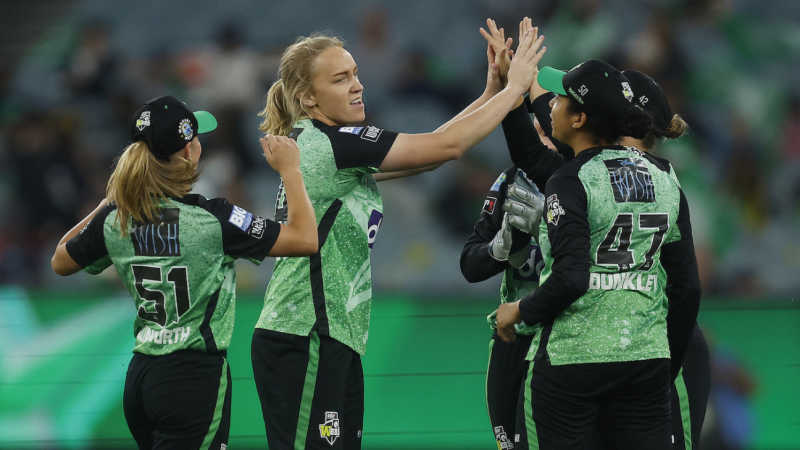The new women’s domestic T20 competition in Australia will now be aligned to the eight WBBL clubs, alongside an ACT side, rather than state teams after pressure from Victoria and New South Wales over the proposed structure.
The tournament, designed to make up for the reduced WBBL which has been trimmed to a 40-game regular season, was initially going to be state-based but Victoria and New South Wales, who both provide two teams in the WBBL, were unhappy with that model and feared some of their fringe players could potentially lose out on playing opportunities.
Under the solution thrashed out by the states and CA, there will now be eight teams under their WBBL banners plus a side from ACT who play in the WNCL one-day tournament. The competition will take place before the WBBL season with each side playing four matches and the top four teams moving to the semi-finals.
The timing of the tournament means it will run alongside the T20 World Cup in Bangladesh so the Australia players won’t be involved which naturally opens up spots in teams while overseas stars are not expected to feature prominently.
A complicating factor will be around ACT who have a number of players contracted to WBBL clubs including key batter Katie Mack who plays for Adelaide Strikers.
With the WBBL being trimmed to match the BBL in an attempt to manage the increasing workloads of the game’s leading players, ensure overseas names still want to join, encouraging growth in crowds and to cut out non-primetime matches, there was a strong push to ensure that there was not an overall reduction in matches for state cricketers.
The restructuring of the women’s domestic programme was announced at the launch of CA’s Women’s and Girls Action Plan last month but since then the stance of Victoria and New South Wales has required reworking of the original plans.
“Cricket NSW has always been committed to the success of the Sydney Sixers and Sydney Thunder and the tournament announced today will help both of our clubs in their quest for WBBL success and to produce players for Australia,” New South Wales chief executive Lee Germon said.
“That enhanced player pathway is in the best interests of Australian Cricket and provides further opportunity for the continued success of our national women’s teams.”
The delay in confirming the structure of the competition also meant that state contracts, which would normally have been confirmed by the end of April, were put on hold amid the uncertainty.
The new T20 competition will raise the average female domestic player salary for 2024-25 to AU$163,322 while the current WBBL salary cap has been maintained meaning no reduction in player payments.
